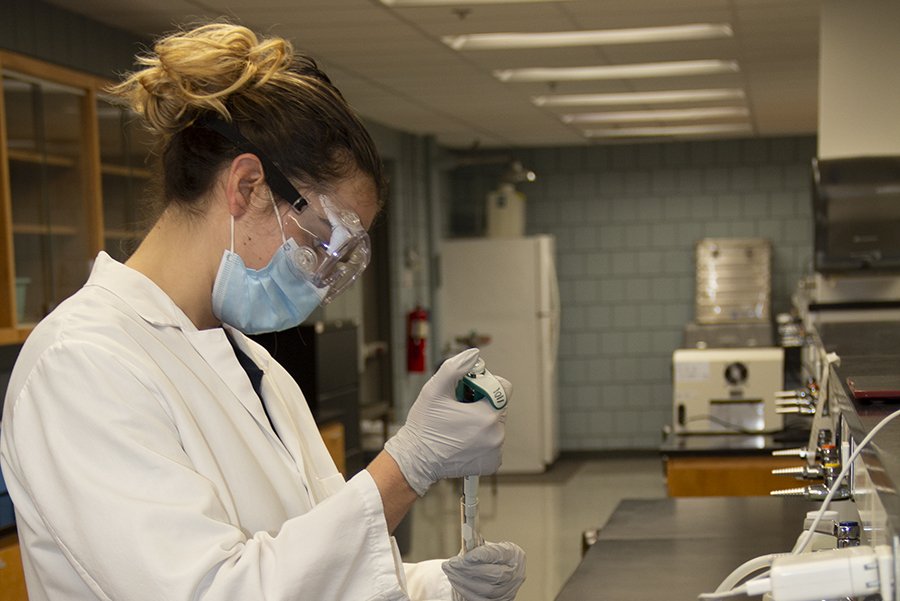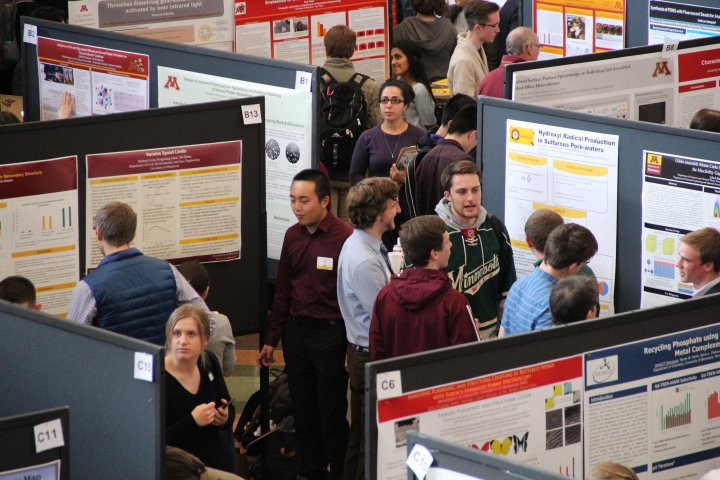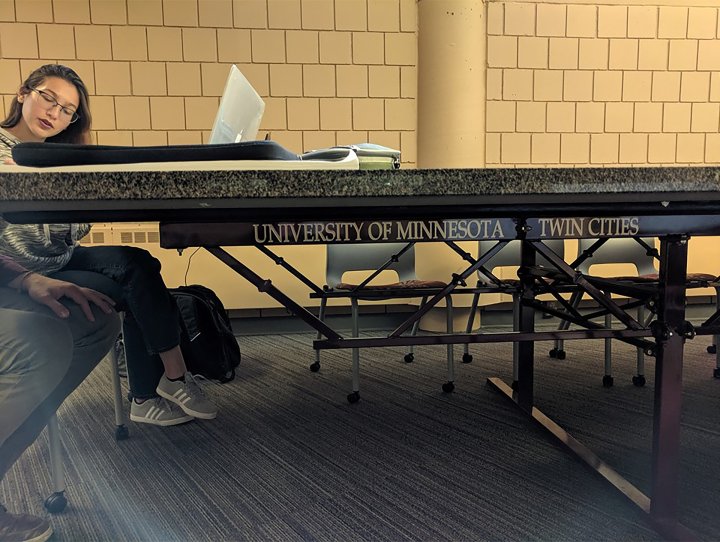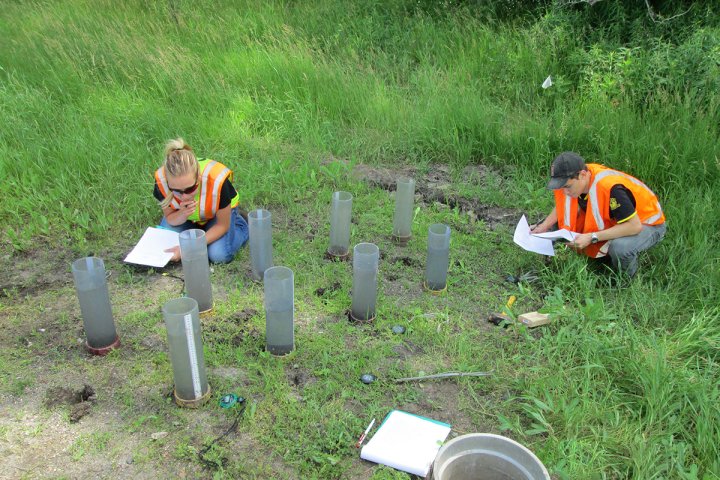Undergraduate Research
Undergraduates in CEGE have many opportunities to participate in research with faculty, staff, and other students.
You could work in a variety of research facilities including faculty laboratories, the St. Anthony Falls Laboratory, the Theodore V. Galambos Structural Engineering Laboratory, or at outdoor research sites. Students are often supported through research grants obtained by their faculty advisors.
Why Participate in Research?
Participating in research as an undergraduate student in CEGE can help you:
- Explore your area of interest and clarify your post-graduation plans
- Become well versed in the scientific process of research including lab techniques, interpretation of data, and the integration of theory and practice, all while working alongside distinguished faculty
- Develop transferable skills such as written and oral communication, critical thinking, and information literacy
- Create relationships within CEGE with faculty, graduate students, and your peers
- Prepare for graduate school by enhancing your research skills and expertise



I worked with Professor John Gulliver starting out as a freshman. He let me co-author the paper on our research project. He let me have a lot of independence, even though I’m sure he could have done things ten times faster. Having skills in research and writing helped me to advance. I attribute a lot of my success to having that really valuable experience early on.
Kathryn Klarich, Civil Engineering
When I started the project, I had no idea what a swale was or how to calculate anything or even why it was good for them to infiltrate water. To go from that to where I am now is very rewarding and a validation that no matter where you start you can be amazed by where you end up. It’s been a real confidence booster.
Anthony Vecchi, Civil EngineeringHow to Get Involved in CEGE Undergraduate Research
-
Read Tips on Finding a Faculty Mentor
Establishing a good working relationship with a faculty member is a key element in a successful research project. Finding a faculty mentor can be challenging, but this guide can help you with this process (created by the University of Minnesota). -
Review Undergraduate Research Opportunities
Read descriptions of some (but not all) recent projects and find faculty who have undergraduate research opportunities available. -
Research the Project and the Faculty
If you find a project that interests you, take time to find out a little more about the project and the faculty member's field of expertise. This could include looking at the faculty member’s personal or research group website, reading articles published by the faculty member, or finding other information or videos about the research area. -
Contact the Professor
Connect with the faculty member by writing an email or visiting during their office hours. Indicate who you are, why you are interested in the research, and any experience you have that may be relevant to the position or project. Ask if they are available to discuss the opportunity or if there is a formal application process to follow. Some faculty may ask you to send them a resume. If you need support crafting or revising a resume, check out the CSE Career Center’s resources.
Undergraduate Research Opportunity Program
In addition, the University-wide Undergraduate Research Opportunity Program (UROP) offers research support for successful applicants.
Contact
Michelle Anderson
Industry & Pre-Major Coordinator
and04707@umn.edu
612-625-1807
Department of Civil, Environmental, and Geo- Engineering
500 Pillsbury Drive S.E., Room 147
Minneapolis, MN 55455